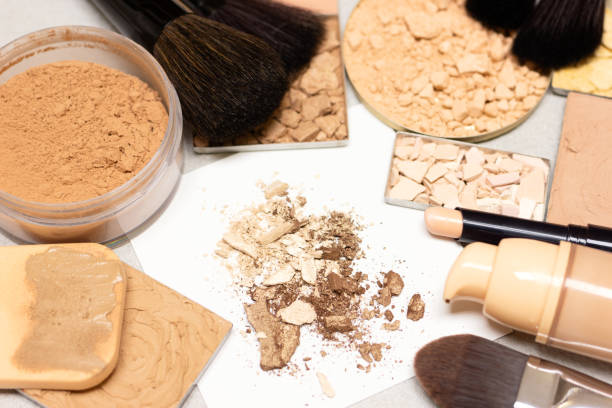Finding the right foundation can be daunting for beginners, but it is the cornerstone of achieving a flawless makeup look. In this article, we’ll guide you through the essentials of foundation makeup, offering detailed tips and techniques to help you navigate this complex beauty product. Whether you’re a seasoned beauty afiçionado or a complete novice, this guide will equip you with everything you need to know.
Understanding Your Skin Type

The first step in selecting the right foundation is understanding your skin type. Foundations come in various formulations aimed at specific skin needs. Knowing your skin type will help you choose the product that will work best for you.
-
Oily Skin:
Look for oil-free or mattifying foundations to control shine. -
Dry Skin:
Hydrating or moisturizing foundations are ideal, often containing ingredients like hyaluronic acid. -
Combination Skin:
You might need a balanced foundation that offers hydration while controlling oil in the T-zone. -
Sensitive Skin:
Opt for foundations that are hypoallergenic and fragrance-free.
Finding the Right Shade
Choosing the perfect shade of foundation is crucial for a natural look. An ill-fitting shade can ruin even the best makeup application. Here are some tips to find the right shade:
-
Test on Your Jawline:
Apply foundation to your jawline and blend. The right shade should blend seamlessly with no noticeable lines. -
Natural Lighting:
Always check the shade under natural light for the most accurate assessment.
Consider Undertones:
Identify whether your skin has cool, warm, or neutral undertones and choose a foundation that complements them.
Types of Foundations
There are various types of foundations available, each suited to different preferences and skin types. Understanding these options will help you make an informed choice.
Liquid Foundation
Liquid foundation is versatile and offers a range of coverage options, from light to heavy. It’s easy to blend and works well for many skin types. Whether you have dry, oily, or combination skin, there’s likely a liquid foundation that will suit your needs. It’s also available in different finishes such as matte, dewy, or natural.
Powder Foundation
Powder foundations are perfect for oily skin as they absorb excess oil and offer a matte finish. They are portable and easy to apply, making them ideal for touch-ups throughout the day. However, they might not provide as much coverage as liquid foundations and can sometimes look cakey on dry skin.
Cream Foundation
Cream foundations offer full coverage and are generally suitable for normal to dry skin. They have a thicker consistency and provide a dewy finish. They’re particularly good for evening out skin tone and covering blemishes or hyperpigmentation.
Application Techniques
Once you’ve chosen the right foundation, proper application is key to achieving a seamless look. Here’s how you can master it:
-
Prep Your Skin:
Always start with a clean, moisturized face. Applying a primer can also help smooth out your skin and make your foundation last longer. -
Tools:
Use a foundation brush, sponge, or your fingers for application. Each tool offers a different finish, so experiment to see which one you prefer. -
Blending:
Blend foundation from the center of your face outward. Be sure to blend into the hairline and under the jawline for a natural look. -
Setting:
Set your foundation with a light dusting of setting powder to prolong its wear and reduce shine.
Conclusion
Mastering the art of foundation makeup is crucial for a polished and radiant appearance. By understanding your skin type, finding the right shade, selecting the appropriate type of foundation, and employing proper application techniques, you can achieve a flawless finish. With practice and the right products, you’ll become more confident in your makeup routine. Remember that the foundation is just that—the base for all your other makeup. Getting it right will set the stage for everything else.
FAQs
What is the best foundation for beginners?
Beginners may find a liquid foundation easiest to work with due to its blendability and variety of coverage options. Choose one that suits your skin type and preferred finish (matte, dewy, etc.).
How can I make my foundation last all day?
Prepping your skin with a primer, setting your foundation with a setting powder, and using a setting spray can help make your foundation last throughout the day.
Can I mix foundations to create my perfect shade?
Yes, you can mix foundations to achieve a custom shade. This is especially useful if you have a hard time finding a perfect match or if your skin tone changes with the seasons.
Should I apply foundation with a brush, sponge, or fingers?
It’s a matter of personal preference. Brushes can offer a more polished finish, sponges provide a natural look, and fingers can be convenient and effective for quick application.
Do I need to wear primer under my foundation?
While it’s not mandatory, wearing a primer can enhance the application and longevity of your foundation. It creates a smooth base and can address specific skin concerns, such as large pores or redness.
